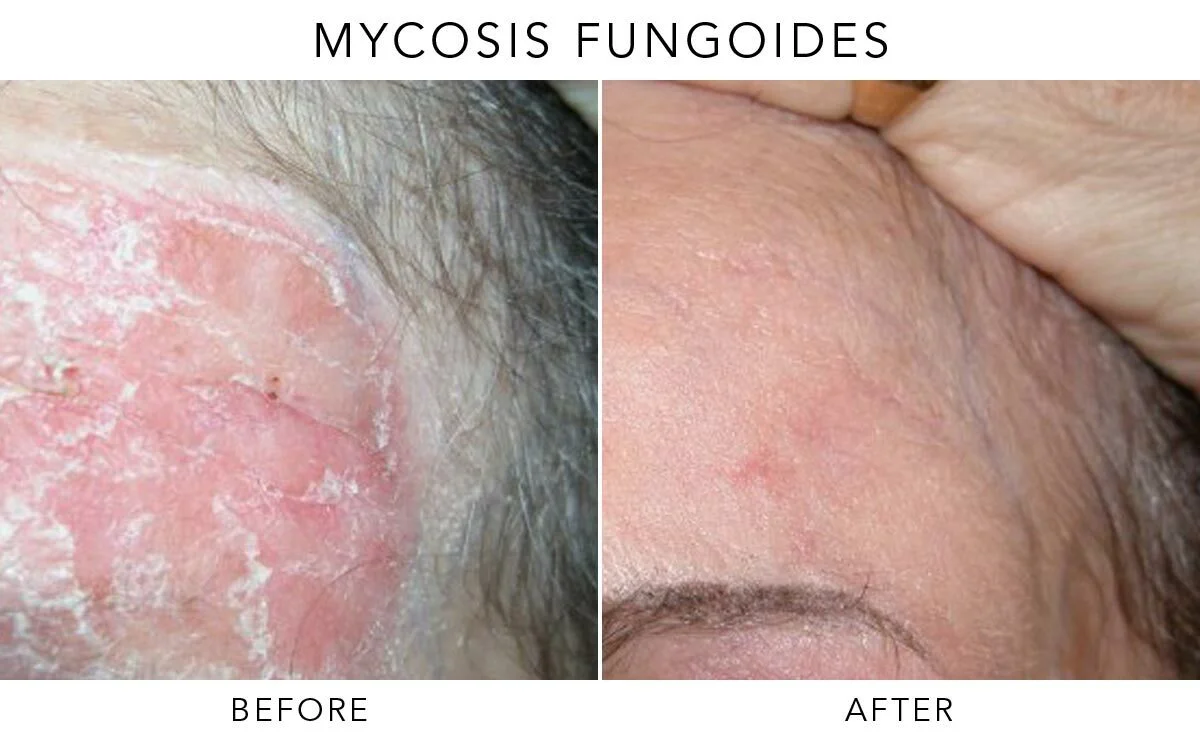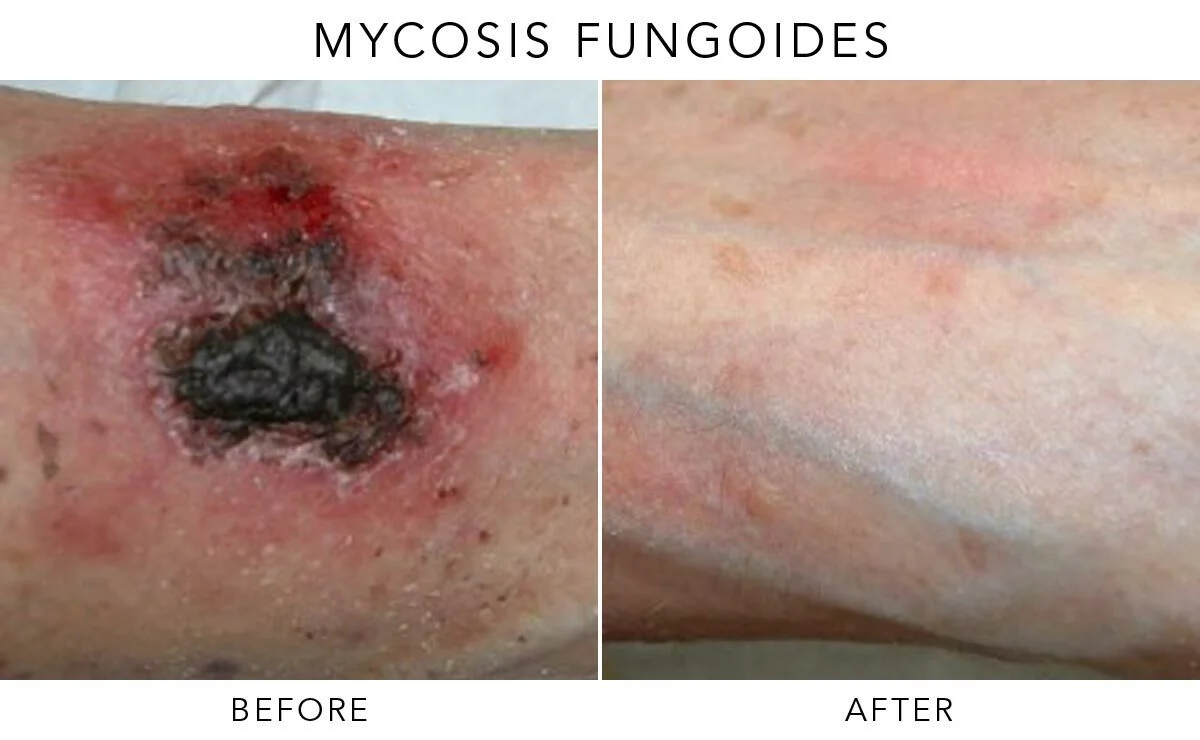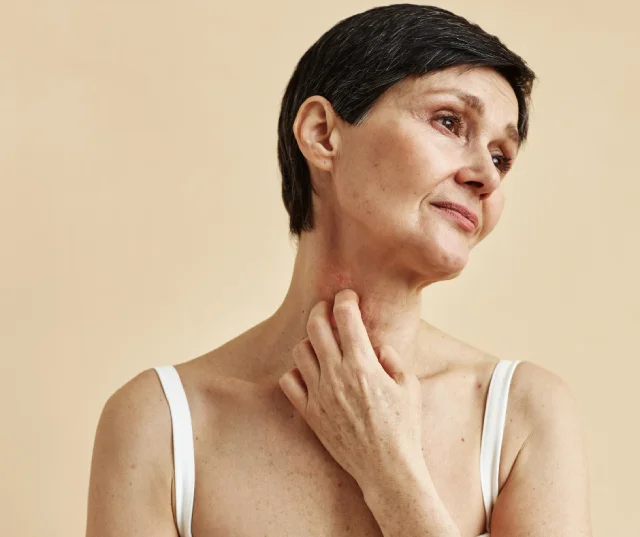
Understanding Mycosis Fungoides Treatment: Diagnosis & Remission
Mycosis fungoides is a rare type of blood cancer that affects the skin, causing red, scaley patches to appear which can eventually progress into tumours. Mycosis fungoides is often misdiagnosed due to its resemblance to benign skin conditions like eczema or psoriasis. Early diagnosis and treatment are critical for improving remission and survival rates.
Though signs and symptoms manifest on the skin, mycosis fungoides is rooted in an overproduction of T-cells which travel to the skin’s surface. Early stages of the cancer first include benign-appearing marks across the body.
Mycosis fungoides treatment is essential, not only for a patient’s mental and physical well-being but to increase rates of remission and survival. Adonia Medical Clinic is an internationally recognized leader in certain procedural treatments known to improve and aid in curing mycosis fungoides, including photodynamic, light-based interventions like Exciplex®.
Mycosis Fungoides Four Stages: Symptoms and Development
Early mycosis fungoides appears in a similar way to other skin conditions, such as eczema or psoriasis. It also develops more frequently on the trunk, limbs, thighs, and lower back/buttocks.
Mycosis fungoides is triggered when the body overproduces T-cells, which then aggregate on the skin. T-cells are an important part of the immune system responsible for fighting infections, but ongoing high levels of T-cells indicates the body may be experiencing a more serious infection or certain kinds of cancer.
It’s important to understand the four major stages of mycosis fungoides development:
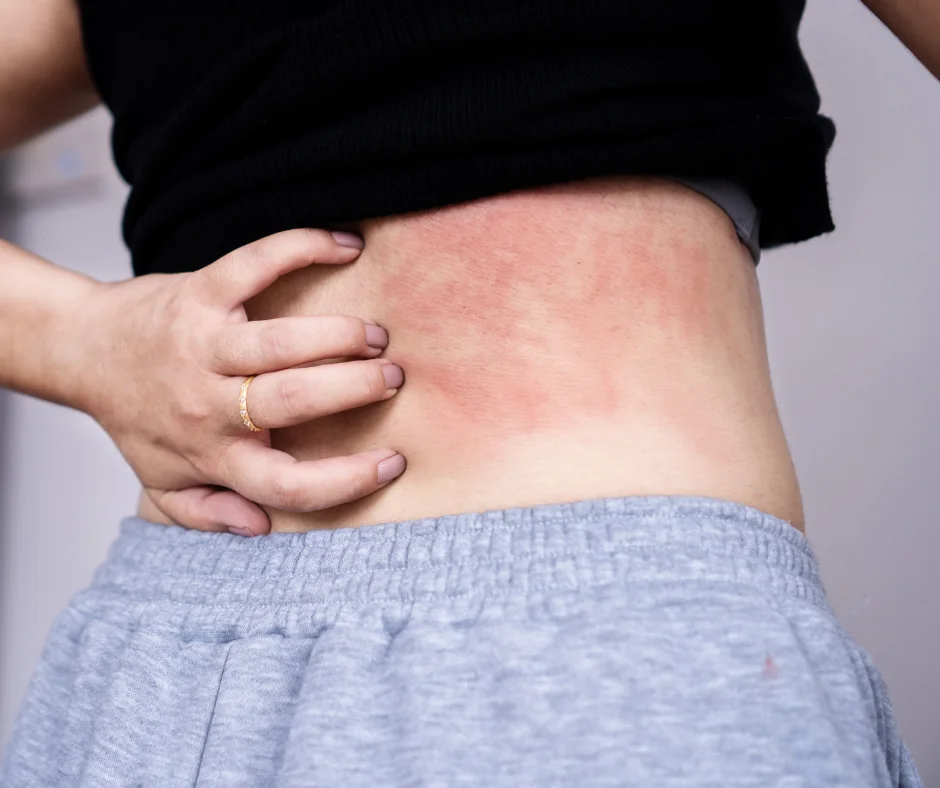
Causes of Mycosis Fungoides
There is no known cause for mycosis fungoides. Like nearly all forms of cancers, researchers believe people may develop mycosis fungoides based on several risk co-factors and triggers:
Mycosis Fungoides Treatment
There are three main categories of treatment for mycosis fungoides:
- Topical treatments. Including cream-based corticosteroids, topical localised chemo, and certain types of prescription topical retinoids.
- Systemic treatments. Whole-body treatments such as immunotherapies and chemotherapy, as well as oral retinoids. And for the most severe stage IV cases of mycosis fungoides, stem cell transplants.
- Nonsurgical procedural treatments. Medical interventions which specifically address malignant T-cells locally instead of via broad, full-body systematic models.
Dr. Ejikeme and her team specialise in treating localised lesions of mycosis fungoides using Exciplex®️ therapy. If your condition requires more extensive treatment or alternative approaches, you may be referred to ensure you receive the most suitable care for your individual needs.
Exciplex® Light-Based Mycosis Fungoides Treatment
A leading medical intervention today, Exciplex® offers a non-invasive procedural treatment that can be essential to preventing mycosis fungoides progression.
Because mycosis fungoides begins with a dysregulated immune system overgenerating malignant T-cells, which compound on the skin, comprehensive treatments need to directly target the disease at an immune-cellular level.
Why does Exciplex® work for treating Mycosis Fungoides?
- Directly targets and kills malignant T-cells
- Shrinks and reduces skin lesions, plaque, and scale buildup
- Improves overall skin texture and appearance
- Targets only lesions without damaging the surrounding skin
- Outpatient therapy with minimal side effects
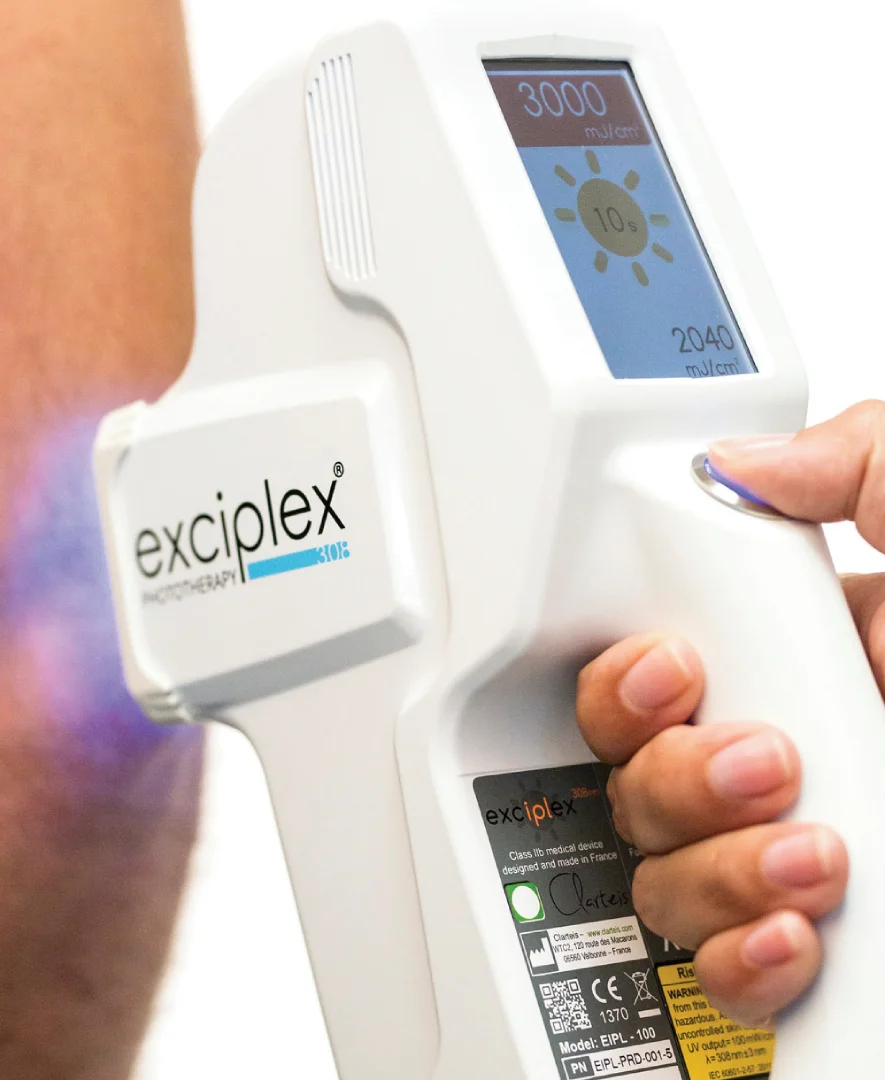
Central London Mycosis Fungoides Treatments Across All Stages
Mycosis Fungoides’ light therapy treatments are an essential part of tackling this disease head-on.
It can be difficult to know who or where to turn. Dr. Ifeoma Ejikeme and her team pride themselves on Adonia Clinic’s comprehensive, research-backed procedural treatment offerings across the stages of mycosis fungoide, on top of nurturing a tranquil, compassionate, uplifting environment.
It’s important to get in touch as early as possible to alleviate symptoms and start the path to remission.
What Is Mycosis Fungoides?
Mycosis fungoides is a rare form of non-Hodgkin’s lymphoma which causes malignant (cancerous) red, rash-like patches and lesions to develop across the skin.
There are currently four stages of mycosis fungoides. More progressive forms of the condition are considered severe (Stages III-IV) and affect larger swaths of the body, while Stages I-II are considered less severe.
Before & After Gallery
get in touch today
Talk to us
When it comes to your appearance, our skin experts at our Central London clinic can help target a range of concerns. We’re experts at treating Black, Asian, Caucasian and mixed heritage skin with our scientifically-led treatments, creating results that enhance and empower. Contact us today to find out how we can help.
Call: 020.3875.7399 Email: info@adoniamedicalclinic.co.uk Book Online
Your skincare suggestions…
Browse below for our personalised, handpicked skincare choices that work for your unique needs.

 020.3875.7399
020.3875.7399


